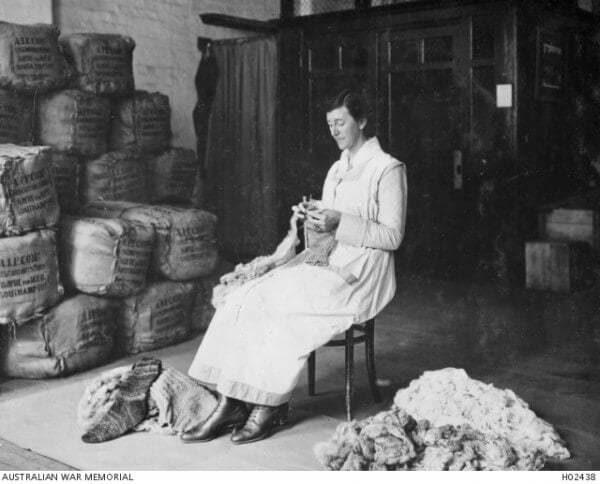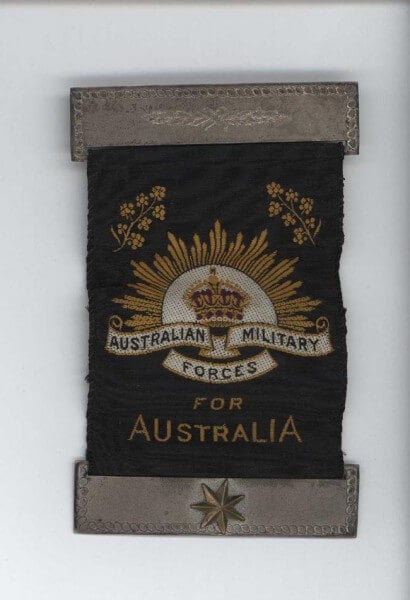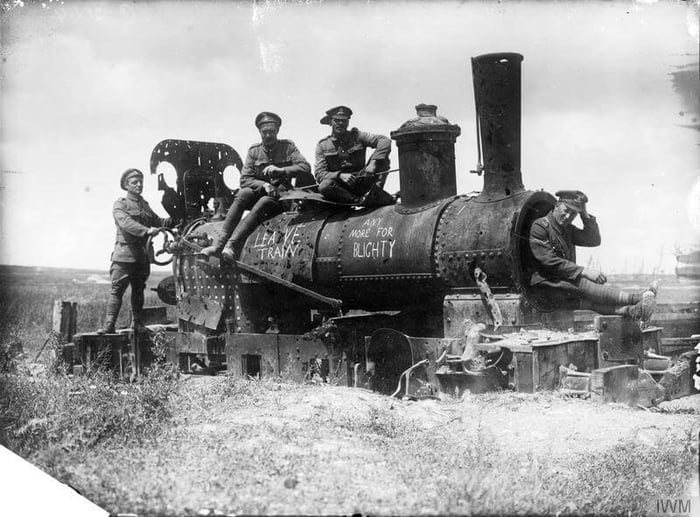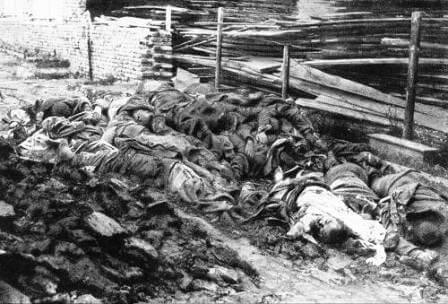
12 Million Cups to Victory
Image: War work. From fleece to sock. Miss Coll is shown knitting socks direct from the fleece of a sheep. The Australian Comforts Fund then packed the socks into bales and shipped them overseas to Australian troops
During the Somme winter conditions were atrocious immediately behind the front lines. Next time you sit in a coffee shop, imagine yourself on the front lines of the Great War in 1916. In August 1916 the Australian Comforts Fund was established to coordinate the volunteer efforts of State-based patriotic funds set up earlier in the War. It went on to operate in Australia and abroad.
You might be cold, wet and exhausted, either on your way or returning from the front. You stop at a coffee stall run by the Australian Comforts Fund for a mug of tea, coffee or cocoa. You and those with you are deeply appreciative of this break from the front.
Your cup would be one of the 12 million mugs of coffee and tea the Australian Comforts Fund served during the Great War.
Run mainly by women, the Fund provided and sent welfare items to the Diggers overseas. Fund care packages featured tobacco, cakes, puddings, condensed milk, sugar, biscuits, newspapers and other ‘luxury’ items. The packages were intended to boost army rations and more importantly, the morale of the soldiers. Fund and other volunteers also knitted 1.3 million pairs of socks.
Australian soldiers working in the cold, muddy conditions of the Western Front valued these socks because among other things they helped to prevent ‘Trench Foot’.
The Australian Comforts Fund was headquartered in Sydney and had branches in each State. Many worked under different names: for example, South Australia women organised themselves into the "League of Loyal Women".
During the Great War the Australian Comforts Fund provided a link between women on the home front and soldiers on the frontline and made an important contribution to the Great War effort. The Fund dissolved in 1920 but re-formed during the Second World War.










